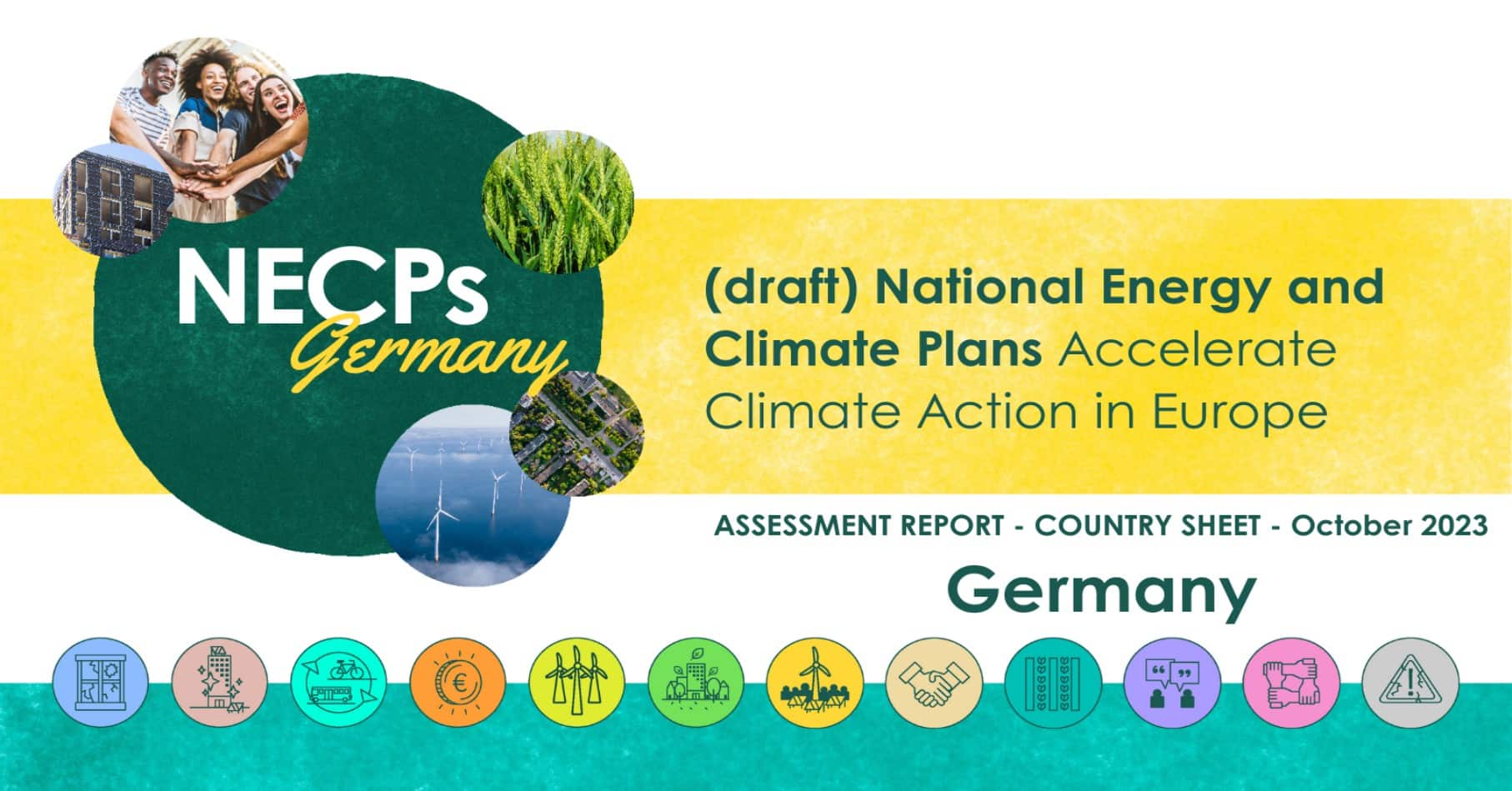Germany has not submitted a draft National Energy and Climate Plan (NECP) update, as of 30 September 2023, and it is not clear when it will. In June, the long-awaited Climate Action Programme – a cornerstone also for the NECP update – was finally adopted. This should imply that the NECP update will soon be submitted. The Climate Action Programme, however, is not sufficient to achieve the 2030 climate targets set in the Federal Climate Protection Act. This was also confirmed by the German Council of Experts on Climate Change. The draft NECP update presents itself as a perfect opportunity to adjust its trajectory. Environmental organisations have developed a set of recommended policies and measures to fill this gap.
Climate Ambition Recommendations
- CO2 prices must increase more rapidly than what is currently set in the Fuel Emissions Trading Act (BEHG). Also, it must be accompanied by the introduction of a climate dividend to ensure social justice.
To align with the national 2030 climate targets (-65% by 2030 compared to 1990), additional measures are needed especially in transport and building sectors:
- In the transport sector, effective short-term measures include revising the company car benefit to smaller electric cars and introducing a bonus-malus system in vehicle taxes. In the medium term, the focus should be on expanding rail and public transport infrastructure and on halting the construction of new highways.
- In the building sector, in addition to the ramp-up of renewable heating and district heating systems, an ambitious renovation strategy is also needed. Priority should be given to existing buildings constructed before the first thermal insulation ordinance.
Energy Transition Recommendations
- Establish a national energy efficiency contribution that surpasses the Energy Efficiency Directive’s (EED) formula, amounting to no higher than 194.23 Mtoe for primary energy consumption and 155.95 Mtoe for final energy consumption as per 2023 EED. The new German Energy Efficiency Act points to a national contribution aligned with the EED, while it is of paramount importance that this minimum level becomes more ambitious and more energy efficiency measures are included than in the German Act.
- Set binding annual energy savings targets for individual sectors, accompanied by monitoring and sanctioning mechanisms.
- Set a nationwide, legally binding solar standard for new buildings, as well as for conversions and renovations for all suitable roofs and other suitable surfaces. This standard should apply, for example, to residential buildings, office and commercial buildings, public buildings, and parking lot surfaces (roofing), as well as to noise barriers.
- Set an effective energy sharing concept and enabling conditions for tenant electricity needs.
- Design – quickly and respectfully of the environment – the land targets set out in the Wind Energy Surface Area Requirements Act.
- Step up transparency and coherence in reporting on supply and demand for biomass and green hydrogen and on just transition and energy poverty alleviation
Download germany country sheet NECP assessment report
Download FULL NECP assessment report
PREVIOUS
NEXT

